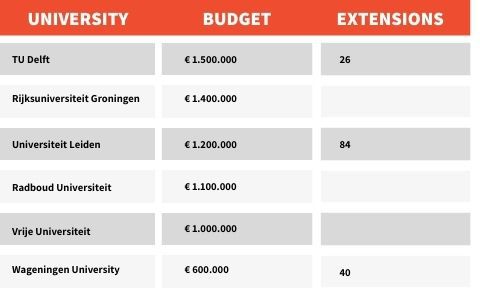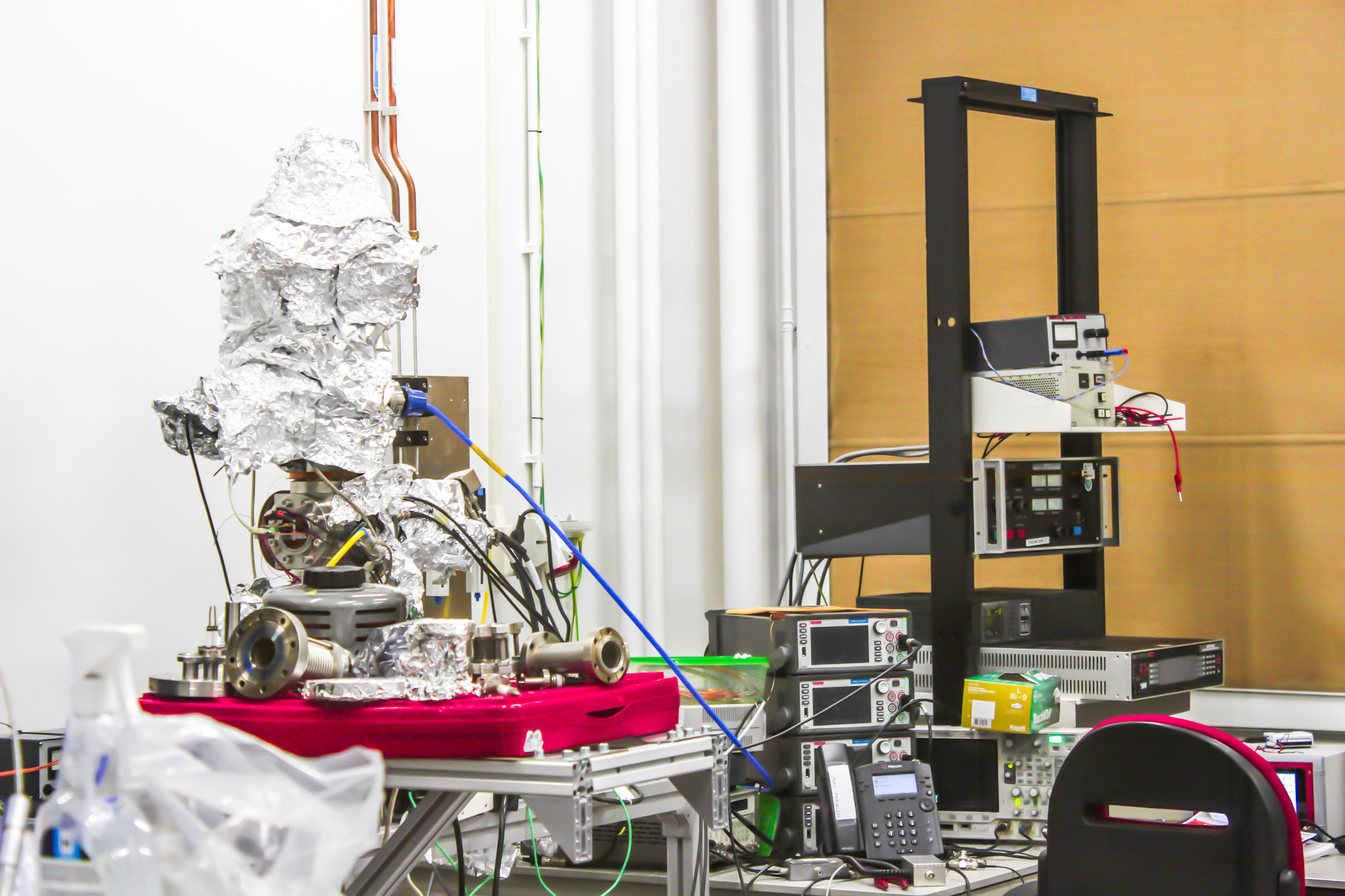In 2020, TU Delft had many fewer PhD candidates and postdocs up for contract extension than other universities. “It seems as if extending contracts was being discouraged.”
Photo for illustration. (Photo: Dalia Madi)
In May 2020, Dutch universities agreed to use 0.45% of the loonruimte, the maximum amount that salaries could be increased, to extend the temporary contracts of research staff who faced research delays because of the corona crisis.
The amount of money that the universities could make available depends on their financial space. For TU Delft, this amounted to about EUR 1.5 million. Other universities had to make do with less. About 2,850 PhD candidates and 400 postdocs work at TU Delft. While TU Delft had more money than Wageningen University (EUR 650,000) and Leiden University (EUR 1.2 million), far fewer researchers had their contracts extended there than at either Wageningen or Leiden Universities. Only 26 PhD candidates and postdocs had their contracts extended against about 40 at Wageningen and 84 at Leiden (in Dutch). The other universities have not made the number of extensions known.

This number is very small says the University PhD Council (UPC) and the PostDoc Network TU Delft. Last year, several advocates for young researchers across the country raised the alarm. These included The Young Academy, the PhD Network Netherlands and PostdocNL. Their message was that the corona crisis is affecting PhD candidates and postdocs much more than other scientists.
UPC and PostDoc Network are doubtful that the low number of extensions at TU Delft arises from a lack of corona related delays. “We know that there are plenty of staff on temporary contracts that are experiencing delays,” says UPC’s Vittorio Nespeca.
The scale of the problem at TU Delft is not known. What is known though, is that PhD candidates are suffering more under the crisis than other staff. The survey on well-being that TU Delft held earlier this year revealed that both English and Dutch speaking PhD candidates rated their home working situation a 5.3 and a 5.5 respectively. At between six and seven, this figure is significantly higher among other scientists, support staff and teaching staff.
A lack of clear regulations
TU Delft left the decision of contract extensions to the faculties. They had to assess the cases, after which the deans decided who had the right to the corona compensation. The number of staff members who were allocated extra time varied widely across the faculties. The Faculty of Aerospace Engineering (AE) extended the contracts of three PhD candidates while the Faculty of Industrial Design Engineering (IDE), did not use the scheme at all.
UPC and the PostDoc Network Delft abhor the lack of clarity surrounding the procedures for the corona compensation. There is criticism about the lack of clarity (in Dutch) at other universities too, such as at the University of Groningen. The Chair of the PostDoc Network Delft Michaël Maria says that “It differs according to faculty, but in general, postdocs knew little about the scheme. The scheme was referred to obliquely in the faculties’ regular newsletters. The few postdocs who read about it then did not know how they could apply for the compensation and what the criteria were.” Vittorio Nespeca of UPC expresses his opinion. “We knew that the decision-making authority lay with the deans, but we did not know what the criteria were. We offered to help define centralised guidelines, but that did not happen in the end. There was no clear communication about this at all.”
The faculties view this differently. An AE spokesperson says that “there was enough communication to make the basic points of the scheme clear.” The Faculty had asked the department secretaries to communicate the loonruimte scheme in their respective departments, share information about the scheme through the weekly Faculty newsletters, and to inform the Graduate School and the PhD Council of the scheme.
Discouragement
Earlier this year, the Faculty of Civil Engineering and Geosciences (CEG) announced that the fewest possible number of researchers would have to draw on the reserved loonruimte. In doing this, the Faculty shared the position of the Economic Activities, Research Financing and Third Party Agreements corona working group led by CEG Dean Jan Dirk Jansen. Vittorio Nespeca of UPC believes that this position was taken elsewhere at TU Delft. “In the end, it looks like applying for postponement is strongly discouraged despite the available financing,” he says.
At IDE, where no extensions were granted in 2020, there is no agreement. A Communications staff member did announce that the Faculty will first look at other solutions and will only then consider extensions. This means that some PhD candidates may obtain their doctorates on more limited research that originally planned. It could also mean that the research was carried out differently than planned. “We always look jointly at alternatives, if that proves necessary. We believe that continuation is the best option for everyone. Creativity often allows more opportunities to be found to continue. Of course, should it prove impossible, other routes must be looked at and the issue of longer employment contracts discussed.” Delta also asked CEG for a response but the Faculty did not respond.
Do you have a question or comment about this article?
a.m.debruijn@tudelft.nl


Comments are closed.